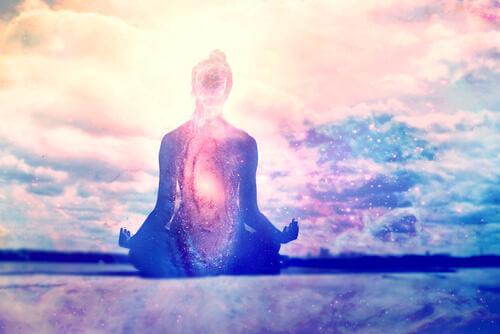Nirvana is considered a state of liberation from suffering, or dukkha, and is part of the cycle of rebirth in shamanic philosophy, it is one of the most important concepts of Buddhism, Jainism and Hinduism, this can only be achieved through different spiritual or technical practices
In this way, whoever reaches Nirvana will be absolutely free from all suffering, being reaches the state of Nirvana through arduous effort and after a long spiritual journey, in which he finally frees from any kind of attachment.
- “There is.
- Monks.
- A condition where there is no land.
- No water.
- No air.
- No light.
- No space.
- No limits.
- No time.
- No kind of being.
- No ideas.
- No lack of ideas.
- Neither this world nor that world.
- Neither sun nor moon; to this.
- Monks.
- I do not call what is to come.
- Neither rising.
- Nor expiration.
- Nor death.
- Nor birth.
- Nor restriction.
- Nor change: is this the end of suffering? -Siddhartha gautama-.
The state of Nirvana is very important in the philosophy of Buddhism because it breaks with the Samsara cycle, which perpetuates suffering through reincarnation and experiences resulting from karma.
Thanks to the state of Nirvana, it is possible to achieve absolute liberation through the cycle of life and death that ends, in this way the karmic debts are finally paid off, leaving clear all kinds of suffering.
Nirvana is the last example of liberation achieved by those who practice Buddhism, Hinduism and Jainism, we could say that reaching Nirvana opens the door to a comprehensive peace, oblivious to all kinds of external circumstances.
However, generally speaking, the term is also used to refer to those who have managed to overcome themselves or overcome a particularly complicated personal characteristic.
Any kind of negative situation or feeling that causes discomfort can be an obstacle to feeling good and feeling good, so thanks to Nirvana, we can free the soul and find satisfaction in life.
The path to Nirvana is a personal process to discover absolute truth, which is not really a place to which we must reach, so to achieve the state of total liberation of being, the person must renounce all attachment and material desire, for it is considered that this attachment can only bring suffering.
A being is absolutely free when what has ever slowed him down, like negative feelings, is overcome, then he experiences a moment of peace and it is no longer necessary to produce the cycle of life and death, for all karmic debts are settled.
However, it is not possible to define Nirvana itself, as this would limit it to worldly or cultural conceptions. Achieving this involves a meditation process to analyze in depth body and mind, elements that lack independence.
From a psychological point of view, Nirvana would correspond to a state of calm, of conciliation with oneself, where conflict is no longer a drag.
We are talking about a state in which tension is reduced to its minimum expression, absence of psychic tension that would not activate sensory reflexes and, in addition, would bring emotional stability.
In itself, Nirvana is far from a psychological concept, in the sense that it is originally conceived from the point of view of faith, and psychology is in fact a science.
However, in its definition it can be considered a good reflection of a state to which it can be aspired, a positive starting point for rejuvenating and allowing change.
At the same time, it offers a very interesting reflection on the motivating and, at the same time, frustrating role that desires can have, depending on our emotional state.
A desire may be the stone that ends up sinking us when we are pessimistic, but it can also be a source of more energy and inspiration when we are optimistic.

